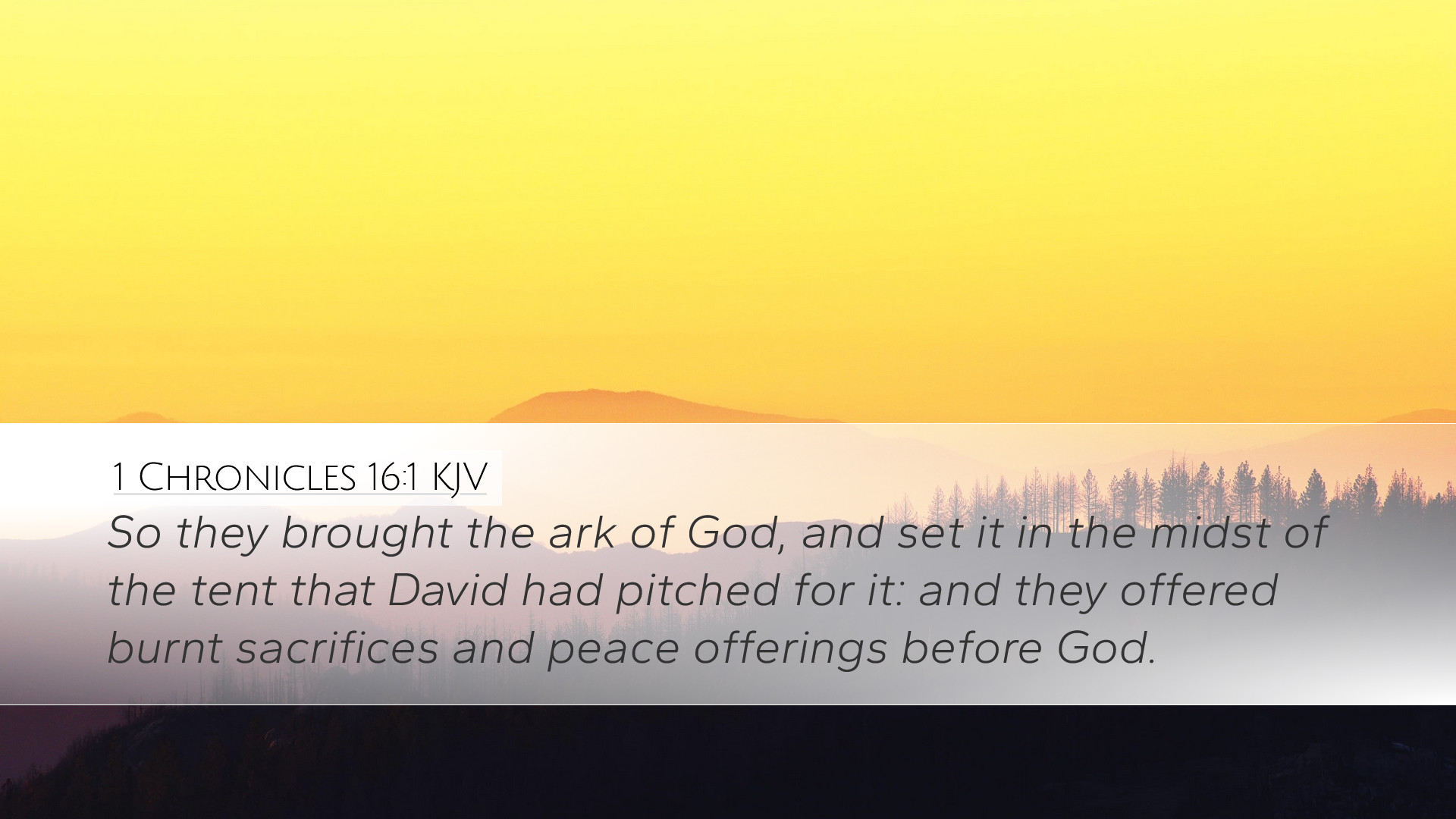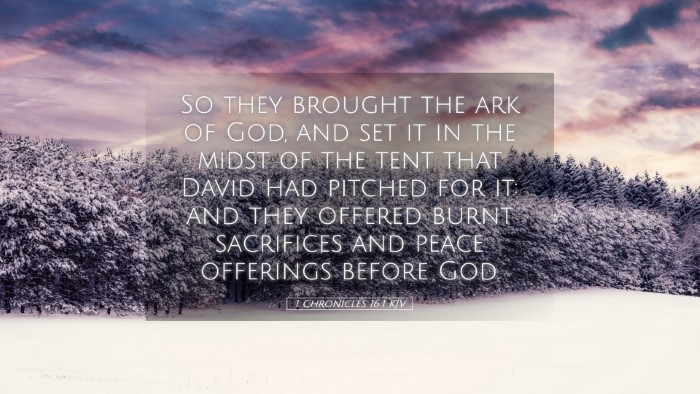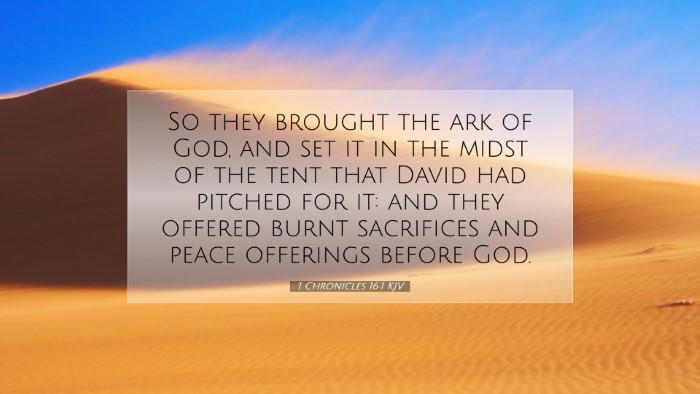Commentary on 1 Chronicles 16:1
Verse Text: "So they brought the ark of God and set it in the midst of the tent that David had pitched for it; and they offered burnt offerings and peace offerings before God."
Introduction
In this powerful verse from 1 Chronicles 16:1, we witness the pivotal moment when King David brings the Ark of the Covenant into Jerusalem, establishing it in a tent he had prepared. This act symbolizes the culmination of David's efforts to centralize worship in Israel and his desire to honor God above all. The verse not only signifies the physical return of the Ark to its rightful place but also a spiritual revival in the nation.
The Significance of the Ark
The Ark of the Covenant represents God's presence among His people. As Matthew Henry emphasizes, the Ark was a symbol of God's covenant with Israel. It contained the tablets of the Law, the pot of manna, and Aaron's rod that budded—each element exemplifying God’s provision, guidance, and authority.
Albert Barnes adds that the Ark was a reminder of God's faithfulness. It had been neglected during the reign of Saul, and under David's leadership, restoring it to prominence illustrates a renewed commitment to God's guidance and fellowship with the nation.
The Tent of David
David's decision to pitch a tent for the Ark reveals his heart for worship. Adam Clarke notes that this tent was a significant step away from the elaborate structure of the tabernacle. It reflected a more personal and accessible approach to worship, emphasizing relationship over ritualistic formality.
By placing the Ark within a simple tent, David communicated that God desired sincerity and authenticity in worship. This act was revolutionary in a time when many nations worshiped through grand and ostentatious displays.
Worship Through Offerings
The burnt offerings and peace offerings mentioned in the verse signify the proper means of worship and devotion to God. Matthew Henry writes that David's offerings represented surrender and commitment, acknowledging God's sovereignty and seeking His favor.
Albert Barnes notes that burnt offerings symbolize complete dedication to God, while peace offerings signify fellowship and gratitude. Together, these sacrifices underline the holistic aspect of worship that David sought to establish among the people.
Theological Implications
1 Chronicles 16:1 serves as a theological reminder of our need for God's presence in our lives. The bringing forth of the Ark symbolizes the invitation to experience God's glory in a personal and corporate manner. Both Clarke and Henry emphasize that this moment prefigures the New Testament reality of God dwelling among His people through Christ.
In the New Covenant, believers have access to God through Jesus, who became the ultimate sacrifice. This connection invites every worshiper to bring their offerings—not of animal sacrifices but of hearts aligned with God's will, echoing the worship established by David in this sacred moment.
Application for Today's Believers
The careful restoration of the Ark and David's heartfelt worship calls modern believers to self-examine their approach to worship. Albert Barnes provides a challenge: Are we as intentional as David in centering our lives around God's presence? The simplicity of David’s worship tent is an invitation to remove barriers that may hinder our relationship with God.
- Intimacy in Worship: As David made the Ark accessible, believers today are encouraged to cultivate deeper intimacy with God, embracing personal and communal worship practices that reflect genuine connection.
- Holistic Offerings: Rather than ritualistic practices, we should offer our entire lives as living sacrifices (Romans 12:1), ensuring that our actions, prayers, and worship reflect our love for God.
- Community Worship: David's act of worship was both personal and communal. Encouraging corporate worship fosters community and unity among believers, further amplifying the presence of God among His people.
Conclusion
1 Chronicles 16:1 stands as a significant verse in the narrative of Israel’s history. It marks a transition in how God’s presence was understood and experienced within the nation. The efforts of David demonstrate a clear call to prioritize God's presence in worship, to seek genuine connection rather than mere compliance with religious duties. As we reflect upon this verse through the insights gleaned from esteemed commentators like Matthew Henry, Albert Barnes, and Adam Clarke, may we too be inspired to bring our lives into alignment with God's design for worship, embracing intimacy, authenticity, and community in our approach to Him.


